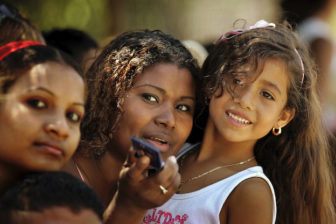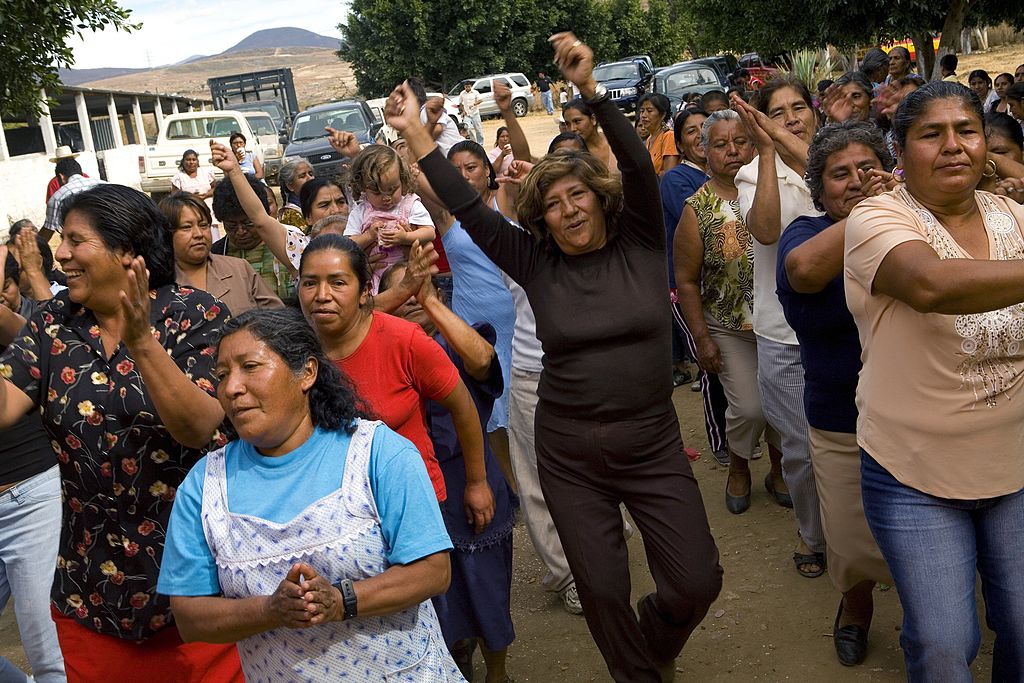Correction appended below
Updated 3/10/17
Seventeen years ago, a group of Latin American and Caribbean NGOs, government agencies and regional bodies officially adopted the term “Afro-descendant” to refer to the region’s approximately 150 million citizens of African origin. The occasion was the Latin American Regional Conference Against Racism in Santiago, and the host was the government of Chile.
Ironically, nearly two decades later and Chile is one of just a handful of countries in Latin America that do not explicitly include an Afro-descendant category on their official census forms. Despite a push from Chile’s Afro-descendant community, that absence will continue in a condensed census set to take place on April 19.
“Afro-descendant people’s fight for inclusion in Chile’s national statistics started in 2005 … There is a vicious cycle of the state denying the existence of Afro-descendants,” said Cristian Báez, director of the Afro-Chilean NGO Lumbanga.
The National Institute of Statistics’ (INE) decision not to incorporate the category “Afro-descendant/Black” in a question about inclusion in indigenous and ethnic groups in this year’s census came as a surprise to some activists. They say that a 2013 regional pilot project by the INE, which identified approximately 8,415 Afro-descendant people in Arica and Parinacota in northern Chile, was supposed to be a precursor to a reference in future censuses.
“There is an understanding now that Afro-descendants exist in the Arica and Parinacota region,” Báez said, adding that when the decision was made to conduct a partial census in 2017 (in addition to a full survey in 2022) his expectation was that an Afro-descendant category would be included.
Representatives from the INE say that was not the case. National director Ximena Clark Núñez said in a statement that the 2017 “abbreviated census” was intended to correct measurements from the full census conducted in 2012, and would only ask questions that “apply to all of the population of the country.” Furthermore, she said that the northern Chile pilot project did not officially recognize Afro-descendant people, nor did it bind the INE to consider or include them in future statistics. As of publication, the INE had not responded to AQ’s requests for comment.
Mara Loveman, a sociologist and author of National Colors: Racial Classification and the State in Latin America, told AQ that the INE’s refusal to acknowledge the country’s Afro-descendant population was emblematic of the community’s social and political invisibility.
“As long as you don’t count (Afro-Chileans) then you can continue to insist that they aren’t there and so there is a certain circularity in the response from the INE … They aren’t visible precisely because they have never had a chance to be visible,” Loveman told AQ.
Afro-descendant groups’ latest push comes in an election year that has seen presidential candidates employ anti-immigrant rhetoric to bolster their support, including by partially attributing the country’s problems with crime and drug trafficking to the presence of immigrants. Recent polls show that approximately 45 percent of respondents believe immigration is bad for Chile. That’s a concern for Afro-Chileans who, especially in larger cities, are often mistaken for Afro-Peruvians, Afro-Venezuelans, Haitians, or other immigrant populations that have recently entered the country in large numbers.
“The problem with immigration in this country isn’t based on nationality but rather race,” said Báez. “The conflict that immigrants experience in this country is because they are black or indigenous… the white, blonde Colombian or Peruvian, for example, doesn’t have any problems here.”
The question of inclusion in the census is more than just a matter of statistics, said Judith Morrison, a senior adviser on gender and diversity at the Inter-American Development Bank. She told AQ that census data are an essential ingredient of social inclusion.
“There are still major challenges to get Afro-descendants (in Latin America) incorporated in political and economic spaces in their countries, whether it’s in discussions around public policies, economics, or labor force participation,” said Morrison. “It is extraordinarily important from a development standpoint to have good access to data.”
Activists in Chile filed legal actions against the INE to get an Afro-descendant category included in the official census, but their case was denied by both the lower and supreme courts. Báez told AQ that they would resort to campaigning ahead of the April 19 census in an effort to get as many Afro-Chileans as possible to write Afro-descendant in the “other” category of the census form. Given the size of Chile’s unrecognized Afro-descendant population, said Báez, that may make them hard to ignore by the time the full census gets underway in 2022.
—
Williams is an editorial intern for AQ. He is from Jamaica.
An earlier version of this story’s caption incorrectly identified the Three Kings’ Day celebration as an Easter celebration.








